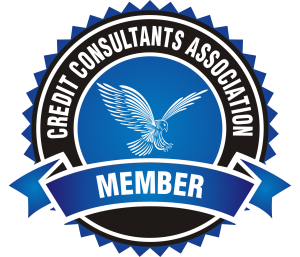Credit Education
CONSUMER CREDIT LAWS
It’s important to understand the credit laws regarding Credit Repair. Here’s some valuable information, please read about laws that can affect your rights.
Beware of Credit Repair Scams
Here are a few warning signs of a Credit Repair Scam!
- Credit Repair companies that guarantee and promise results
- Credit Repair companies that offer to sell you a new Social Security number for a “new start”(CPN)
- Ask you to lie on applications
- Make you pay up-front credit repair payments
- Credit Repair companies that offer a “Credit Sweep”
Social Coaching - Credit Repair
As you know, building up credit is a process. Along with repairing your credit, you’ll need a credit card to reflect creditworthiness. Starting with a secured credit card is a fantastic idea! Banks usually require an initial deposit of $200-$500 deposit.
This deposit will be available for your usage within days of applying for the card. Be mindful not to exceed the 30% utilization of your credit limit.
Example: Credit Limit is $300.
30% utilization is $90. Don’t exceed $90
I strongly suggest that you use this card to make small purchases such as gas or groceries and pay the balance in full each month. This will show your creditor that you are responsible and creditworthy. In a few short months, your secured card will convert to an unsecured card.


Credit Facts You Need to Know
You need to have some history to get a score at all.
Presumably, you will have some “tradelines,” such as consumer or revolving debt. A car loan would be an example of consumer debt. Revolving debt has no set limits on it, like a department store credit card.
“Alternative credit” is monthly obligations that are not formalized by a note, such as utility bills, cell phone bills, health club membership, insurance payments, and so on. Government lenders will require credit history on these types of obligations added to the credit report as additional “trade lines.” Usually, you will need at least three of these.
What about late payments? “Payment as agreed” means that you have not been more than 29 days past due on your bills.
It has nothing to do with late charges on your account. None of us wants to incur late payment charges at all; however, they do not affect your score until you are 30 days late.
Pay your bills on time, keep your balances low, and keep your credit lines for a long time, and your scores will continue to improve to the point that you will enjoy the lowest interest rates and best terms from banks, credit card companies, and mortgage lenders.
4 Steps to Improve Your Score
1. Authorized User
Let’s say your mom, dad, husband, or wife has a credit account in their name that has a long history, low balance, and is paid as agreed. Let us also say that they are willing to add you as an authorized user. It is as simple as the cardholder calling the credit company and requesting a card in your name. All of the score enhancements attached to that account will then be added to your score. It may take anywhere from a few days to a few weeks for that account to report to the three repositories, but when it happens, your score will be boosted.
2. New Credit
Go out and get another credit account. If you have a low score, you may believe you cannot get another account, but this is generally true for credit cards, but there are other accounts you can get. Secured credit cards are like prepaid cell phones. You pay several hundred dollars into a secured account at a credit union or bank and receive a credit card in return. When you use the account, it is reported to the credit repositories as a credit card. Remember that you don’t want to charge much as it is better to keep your balance very low. A low balance on available credit enhances FICO scores.
3. Pay Down Debt
If you are maxed out on your credit cards, your score suffers tremendously. By paying them down to less than 30% of your authorized maximum, your score will be significantly improved in a short time, typically within a month.
Another option is asking your credit company to increase your credit limit to hit that 30% ratio. The more accounts you have paid to under 30% of the credit limit, the better your score.
4. Do Not Pay Collection Accounts
Collection accounts are debts that creditors have usually given up on but continue to be reported on your credit. Meaning the damage has been done. You know you owe the money on these debts and want to come clean, but do not do it right away. Old accounts have already impacted your score, and the older they are, the less effect they have. If you pay the account off, the creditor is happy, but you have added recent activity to a “derogatory account,” and your score will suffer rather than improve.
Pro Tip: It’s Best to Pay Your Credit Card Balance in Full Each Month. Leaving a balance will not help your credit scores—it will just cost you money in the form of interest.
Call us today at 216-867-8755 We Can Help!
More Ways to Improve Your Credit Score
- Automating bill payments from your bank account.
- Use credit cards whenever possible, making sure a reward is earned.
- You can typically increase your credit limit on your credit card every three to six months by calling customer service and requesting the increase.
- Don’t miss a payment.
- Keep old accounts open, consider adding a subscription charge for activity.




